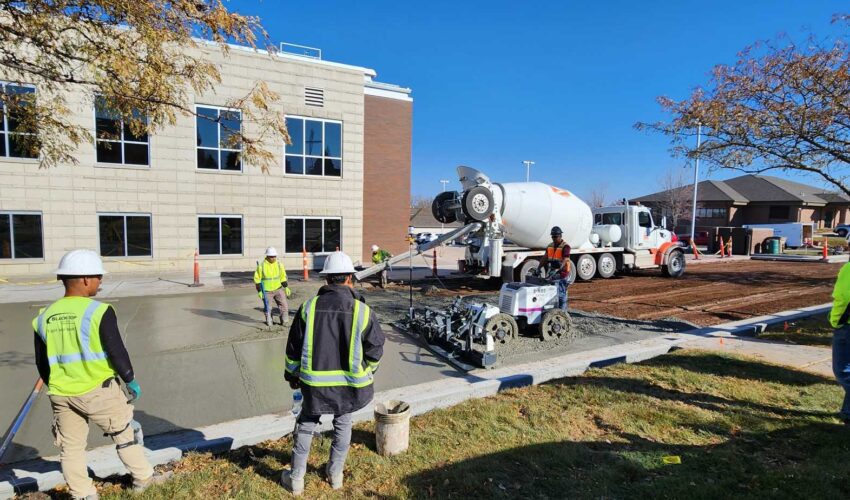Small communities offer opportunities for entrepreneurs who keep this in mind
July 11, 2018
This paid piece is sponsored by the Minnehaha County and Lincoln County Economic Development Associations.
Starting and growing a small business always has its share of challenges and opportunities, but there are some unique situations to consider when opening in a smaller community.
Jeff Eckhoff is the director of the South Dakota Small Business Development Center, which is an outreach center of the USD Beacom School of Business and located at the Zeal Center for Entrepreneurship.
Before that, he spent 16 years as executive director of the Minnehaha County and Lincoln County Economic Development Associations, so he has a clear understanding of what it takes to succeed in business in a small community.
We asked him to share some of those strategies.
Many people considering starting businesses only think about locating in Sioux Falls. But are there reasons to consider opening in a smaller regional community instead? What should you keep in mind?
There are great opportunities in the smaller communities, but like any business venture it requires some research and planning. Prospective business owners should consider what else drives traffic to that town — is it the county seat, is there a health care presence, is there a large grain elevator, how active is the school, etc. Does traffic literally come through their town because they are on a main highway?
Secondly, they should consider what is the trade area of that town. For example, it may be hard for a small-town grocery to compete with the big boxes of Sioux Falls, but if you are the only store within a large radius, you can make accessibility and convenience your advantage.
And finally, and maybe most importantly, what is the culture of the community. Do they embrace growth, is there strong leadership, how do they feel about supporting their local businesses, etc.
How can an entrepreneur determine if there’s a market for the product or service in a smaller community?
There are resources that the SBDC uses to help entrepreneurs compare the industry standards for our area, i.e. how many turns a restaurant of a certain type can expect or what typical sales at this or that type of retail store might be. And while those are good places to start, it doesn’t replace spending some time in the community. Look around and see what other types of businesses have survived and, just as important, why previous businesses failed. Talk to the locals, but make sure to ask a wide sample, be willing to hear the negative as well as the positive. Find out the demographics of the town, age groups, where they work, available housing, etc. And remember that finding the community is just the beginning.
Are there any unique approaches to marketing that you recommend once the business has committed to the location?
As evidenced by the financial struggles of some of the major retailers, the trend is currently moving away from the big box. In fact, since 2012, sales at small retailers have increased faster that at big retail stores. So I think entrepreneurs have to ask themselves what customers nare looking for and why are they turning to smaller stores. I believe the answer is that if people just want to buy something ordinary it’s very difficult to fight the convenience of the click.
What brings people to your doorstep is what I call an authentic experience. Maybe it’s exceptional customer service, a unique product/service or owner expertise. Whatever it is, the ability to survive and grow in a small town relies on bringing in out-of-town shoppers, which grows the base for everyone. So consider how you can provide a full experience that combined with other stores can make your town a destination.
What are some of the challenges entrepreneurs face in smaller communities, and how do you recommend addressing them?
Population and traffic obviously come to mind first, and some of the tactics described earlier need to be a part of the entrepreneur’s business plan. Regardless of the size of town, owners all face some of the same hurdles in getting started, i.e. capital, cash flow, sales, etc. Small towns can sometimes add to these challenges as banks may be more cautious, especially on real estate.
One of the best things a prospective business owner can do is to spend time and effort on their business plan. On our website, sdbusinesshelp.com, we have a business planning guide that we use with our clients to help them build their business plan. And while a good business plan is no guarantee of success, it is a much better approach than flying by the seat of your pants.
Are there some common reasons why businesses struggle to sustain themselves in smaller communities, and is there anything that can be done to combat it?
I think the reasons for failure are as varied as the people that own the businesses. But one danger that people don’t always think about is apathy. I believe it is vitally important for any size community in South Dakota, and even more so in the smaller towns, to always be open to growth and to never take your business owners for granted. Shop local when you can, and be positive about your community. Today, more than ever, negativity makes the headlines, but we all need to think about what those headlines say to prospective customers and citizens.
How can your organization assist small businesses, particularly those in small communities? And how should people reach you to learn more?
We have seven offices across the state, and we provide professional, confidential business counseling to over 1,200 clients a year in virtually every county. We have an extremely talented staff that average over 15 years with our organization. Additionally, many of them have experience in banking, finance and small-business ownership.
We consult on everything from licensing and regulation to business plans and financial projections. We are an outreach program of the Beacom School of Business at the University of South Dakota and are our services are paid for by the U.S. Small Business Administration and the Governor’s Office of Economic Development. To learn more or to find a counselor in your area, check out our website at sdbusinesshelp.com.








